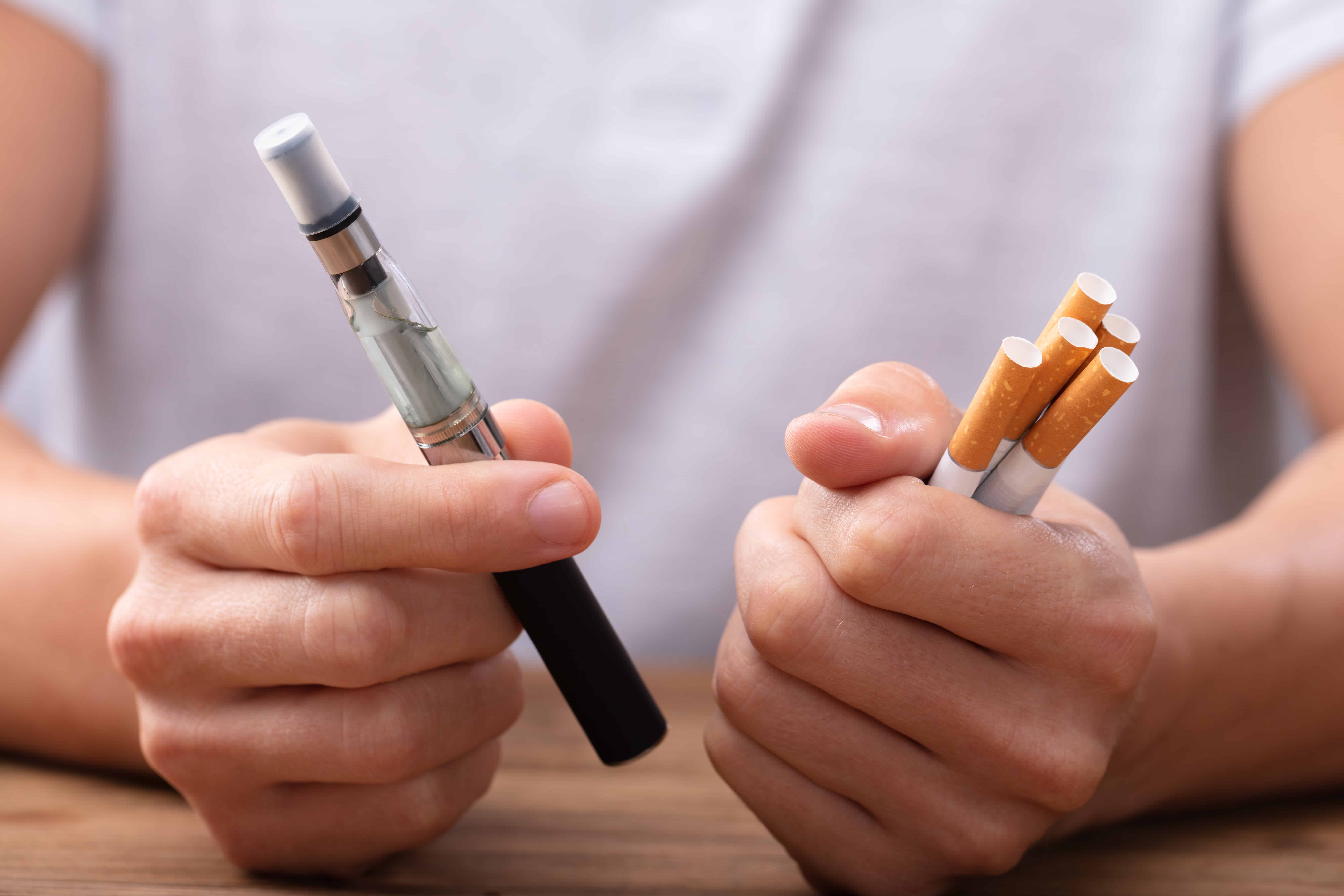Study Shows Juul Vape Pens Deliver More Nicotine Than Cigarettes

Results of a recent study show that Juul vape pens are more dangerous and have a higher potential for addiction and abuse than the company let on. Juul marketed its vaping devices as a safe alternative to traditional cigarettes.
However, it turns out that this might not be true. The study found that Juul’s devices deliver nicotine much faster. As a result, the user gets more nicotine in their body in a shorter amount of time. That’s a perfect recipe for addiction, which is quite troubling, especially given Juul’s youth-driven marketing campaigns.
The Study
Researchers from Penn State University College of Medicine asked six individuals to take 30 puffs on a Juul vape pen over the course of 10 minutes. The participants used the vape pen every 20 seconds. After the 10 minutes were up, researchers drew blood samples for analysis.
The results revealed that the Juul users’ blood samples had “nicotine concentrations almost three times as high as most of the e-cigarette users” from previous studies. Juul’s e-cigarettes, unlike other devices, have a nicotine delivery system that’s “very similar to that of [tradtional] cigarettes.”
The study didn’t just focus on the concentration of nicotine in the participants’ blood. Researchers also asked the individuals to describe nicotine cravings, anxiety, and withdrawal symptoms.
The Juul users reported “higher levels of nicotine dependence” than 3,000 long-term e-cigarette users. Those other e-cigarettes, studies showed, deliver much less nicotine than Juul vape pens.
So, Juul vape pens, according to this study, are probably just as addictive as cigarettes.
Juul Marketed Its Vape Pens As Safer Than Cigarettes
Here’s the problem. Back in 2015, Juul launched an aggressive marketing campaign that was directed primarily at young people. As part of that campaign, representatives from Juul visited high schools across the country.
During discussions with students – after teachers had left the room – Juul representatives told students that the company’s e-cigarettes were “99 percent safer than cigarettes.”
Others told students that their e-cigarettes were “totally safe.” Those statements don’t mesh with the results of the Penn State study.
According to the FDA, Juul also marketed its e-cigarettes as modified risk tobacco products. When classifying a product under this category, the FDA will consider several factors. In order to secure this classification, a company must “demonstrate that the product will or is expected to benefit the health of the population as a whole.” In other words, the product has to be safer than a traditional tobacco product like cigarettes.
The FDA did not classify Juul vape pens under this category. Instead, Juul vape pens are classified as regular tobacco products. That means Juul’s products are not totally safe or safer than cigarettes, as claimed.
Likelihood of Addiction High, Teens Suffering From Dangerous Side Effects
Lawsuits against Juul are mounting. Among other things, plaintiffs claim that Juul’s deceptive and fraudulent marketing practices have resulted in harm to hundreds of teens and young adults. Reported side effects and adverse health issues include:
- Popcorn lung
- Respiratory problems
- Nicotine addiction
- High blood pressure
- Heart problems, and
- DNA damage.
The CDC has also classified a new injury – e-cigarette or vaping product use associated lung injury, or EVALI. To date, more than 2,000 cases of EVALI have been reported. It’s also reportedly caused 39 deaths across the country.
Through the lawsuits, plaintiffs hope to hold Juul accountable for the harm and devastation they’ve allegedly caused. If successful, the plaintiffs may be eligible to receive damages to compensate for:
- Medical bills
- Pain and suffering
- Emotional distress
- Disability
- Loss of enjoyment of life, and more.
If you or someone you care about has been harmed because of Juul’s vape pens or e-cigarettes, you might also be entitled to compensation. It’s important that you fully understand your legal rights and options. By speaking with a personal injury lawyer who has experience handling Juul vape pen lawsuits, you can find out if you have the grounds to file a claim.
